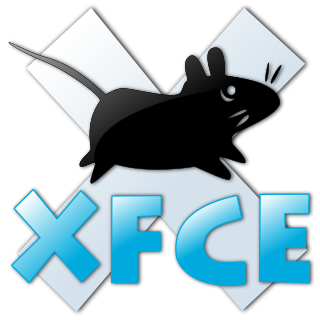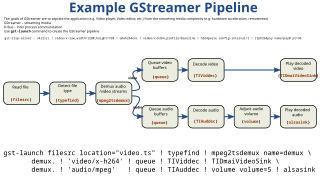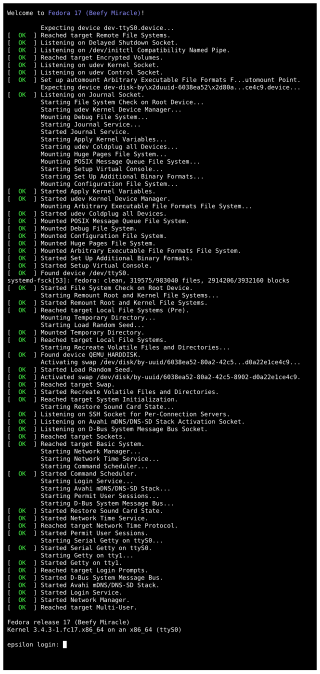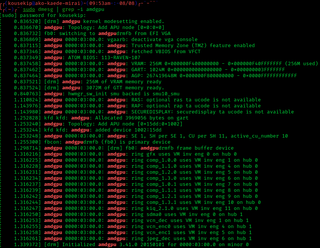Related Research Articles

Xfce or XFCE is a free and open-source desktop environment for Linux and other Unix-like operating systems.
GNOME Files, formerly and internally known as Nautilus, is the official file manager for the GNOME desktop. Nautilus was originally developed by Eazel with many luminaries from the tech world including Andy Hertzfeld (Apple), chief architect for Nautilus. The nautilus name was a play on words, evoking the shell of a nautilus to represent an operating system shell. Nautilus replaced Midnight Commander in GNOME 1.4 (2001) and has been the default file manager from version 2.0 onwards.
freedesktop.org (fd.o) is a project to work on interoperability and shared base technology for free-software desktop environments for the X Window System (X11) and Wayland on Linux and other Unix-like operating systems. It was founded by Havoc Pennington, a GNOME developer working for Red Hat in March 2000. Some of the project's servers are hosted by Portland State University, sponsored by Hewlett-Packard, Intel, and Google.

The X.Org Foundation is a non-profit corporation chartered to research, develop, support, organize, administrate, standardize, promote, and defend a free and open accelerated graphics stack. This includes, but is not limited to, the following projects: DRM, Mesa 3D, Wayland and the X Window System and its primary implementation, the X.Org Server.

GStreamer is a pipeline-based multimedia framework that links together a wide variety of media processing systems to complete complex workflows. For instance, GStreamer can be used to build a system that reads files in one format, processes them, and exports them in another. The formats and processes can be changed in a plug and play fashion.
Mesa, also called Mesa3D and The Mesa 3D Graphics Library, is an open source implementation of OpenGL, Vulkan, and other graphics API specifications. Mesa translates these specifications to vendor-specific graphics hardware drivers.
In computing, D-Bus is a message-oriented middleware mechanism that allows communication between multiple processes running concurrently on the same machine. D-Bus was developed as part of the freedesktop.org project, initiated by Havoc Pennington from Red Hat to standardize services provided by Linux desktop environments such as GNOME and KDE.

NetworkManager is a daemon that sits on top of libudev and other Linux kernel interfaces and provides a high-level interface for the configuration of the network interfaces.
The Tango Desktop Project was an open-source initiative to create a set of design guidelines and to provide a consistent user experience for applications on desktop environments. The project created a set of icons known as the Tango Icon Library and that were described as a "proof of concept". The Tango Desktop Project was a project of freedesktop.org, and was closely linked with other freedesktop.org guidelines, such as the Standard Icon Theming Specification.

The Oxygen Project is a project created to give a visual refresh to KDE Plasma Workspaces.

PulseAudio is a network-capable sound server program distributed via the freedesktop.org project. It runs mainly on Linux, various BSD distributions such as FreeBSD and OpenBSD, macOS, as well as Illumos distributions and the Solaris operating system.

nouveau is a free and open-source graphics device driver for Nvidia video cards and the Tegra family of SoCs written by independent software engineers, with minor help from Nvidia employees.
This article compares variety of different X window managers. For an introduction to the topic, see X Window System.

Wayland is a communication protocol that specifies the communication between a display server and its clients, as well as a C library implementation of that protocol. A display server using the Wayland protocol is called a Wayland compositor, because it additionally performs the task of a compositing window manager.
oFono is a free software project for mobile telephony (GSM/UMTS) applications. It is built on 3GPP standards and uses a high-level D-Bus API for use by telephony applications. oFono is free software released under the terms of the GNU General Public License v2.
In computing, SPICE is a remote-display system built for virtual environments which allows users to view a computing "desktop" environment – not only on its computer-server machine, but also from anywhere on the Internet – using a wide variety of machine architectures.

Plymouth is a free application which provide bootsplash for Linux, which handles user interaction during the boot process. Plymouth supports animations using Direct Rendering Manager (DRM) and the KMS driver and is bundled into initrd which enables it to be launched before the file system is mounted. The program is named after Plymouth Rock, a name which symbolizes the program's role as a first point of entry for users to interact with a computer system.

SystemD is a software suite that provides an array of system components for Linux operating systems. The main aim is to unify service configuration and behavior across Linux distributions. Its primary component is a "system and service manager" – an init system used to bootstrap user space and manage user processes. It also provides replacements for various daemons and utilities, including device management, login management, network connection management, and event logging. The name systemd adheres to the Unix convention of naming daemons by appending the letter d. It also plays on the term "System D", which refers to a person's ability to adapt quickly and improvise to solve problems.

AMDgpu is an open source device driver for the Linux operating system developed by AMD to support its Radeon lineup of graphics cards (GPUs). It was announced in 2014 as the successor to the previous radeon device driver as part of AMD's new "unified" driver strategy, and was released on April 20, 2015.

LDAC is a proprietary audio coding technology developed by Sony, which allows streaming high-resolution audio over Bluetooth connections at up to 990 kbps at 24 bit/96 kHz. It is used by various products, including headphones, earphones, smartphones, portable media players, active speakers, and home theaters.
References
- ↑ "sound-theme-spec". freedesktop.org. Retrieved 24 December 2014.
- ↑ "libcanberra 0.30". 0pointer.de. Retrieved 24 December 2014.